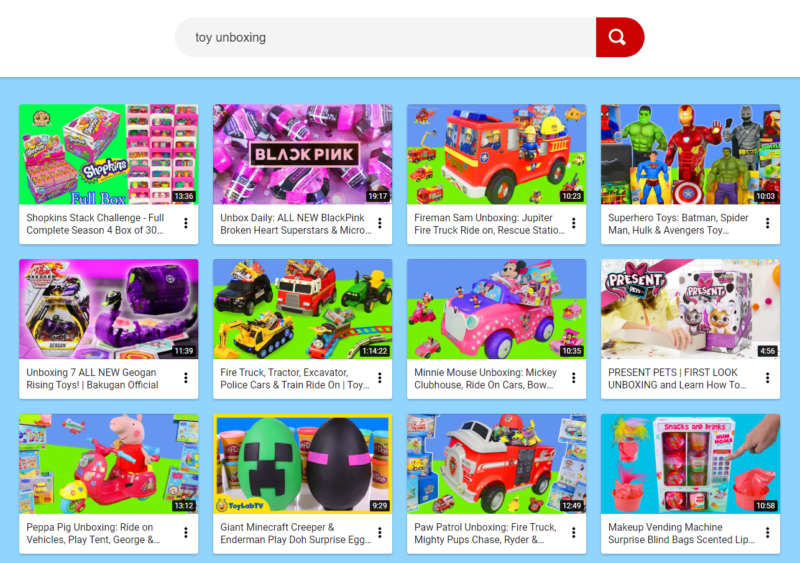YouTube to ban commercial content on Kids platform, adds teen wellbeing features
YouTube has announced several changes to its policies which aim to increase safety and digital wellbeing for viewers under the age of 18.
Amongst the changes is the move to make videos uploaded by children between 13-17 by default private and the removal of “overly commercial content” from YouTube Kids.
In a blog post, YouTube has stated it will begin to remove “overly commercial content” from YouTube Kids, its product oriented towards children that contains additional parental controls and restricted content.
Paid product placements have never been allowed on YouTube Kids, but the new changes to its YouTube Kids content policy expands the definition of prohibited commercial content to now include:
- “Traditional advertisements for products and services uploaded by creators or brands.
- Content that incites the viewer to buy a product.
- Videos focused on product packaging.
- Videos focused on the excessive accumulation or consumption of products.”
One genre of YouTube videos, toy unboxing, remains extremely popular on the platform, with individual videos reaching millions of views. This content, at the time of writing, remains accessible through the YouTube Kids platform.

Search results for “toy unboxing” on YouTube Kids with a user’s age set to 6 at the time of writing
The new content policy for YouTube Kids does not mean the removal of all toy boxing videos from YouTube Kids, however, toy unboxing videos that violate the updated policies may be removed from the YouTube Kids platform.
In the coming weeks, YouTube will also adjust the default upload setting for users between the ages of 13 and 17 to private. Private videos on YouTube can only be viewed by the user that uploaded them. These users will be able to make the video public if they choose to do so at a later date.
Further digital wellbeing features included turning on, by default, reminders for children 13-17 to take a break and bedtime reminders, and turning off autoplay by default. These settings can also be changed.
YouTube Kids will also now have an autoplay option, which will also be turned off by default.
The changes are anticipated to come into effect in the coming months.
YouTube’s announcement follows a series of policy changes by other social media platforms.
Also in July, TikTok added financial services and products to its prohibited industries under its branded content policy.



